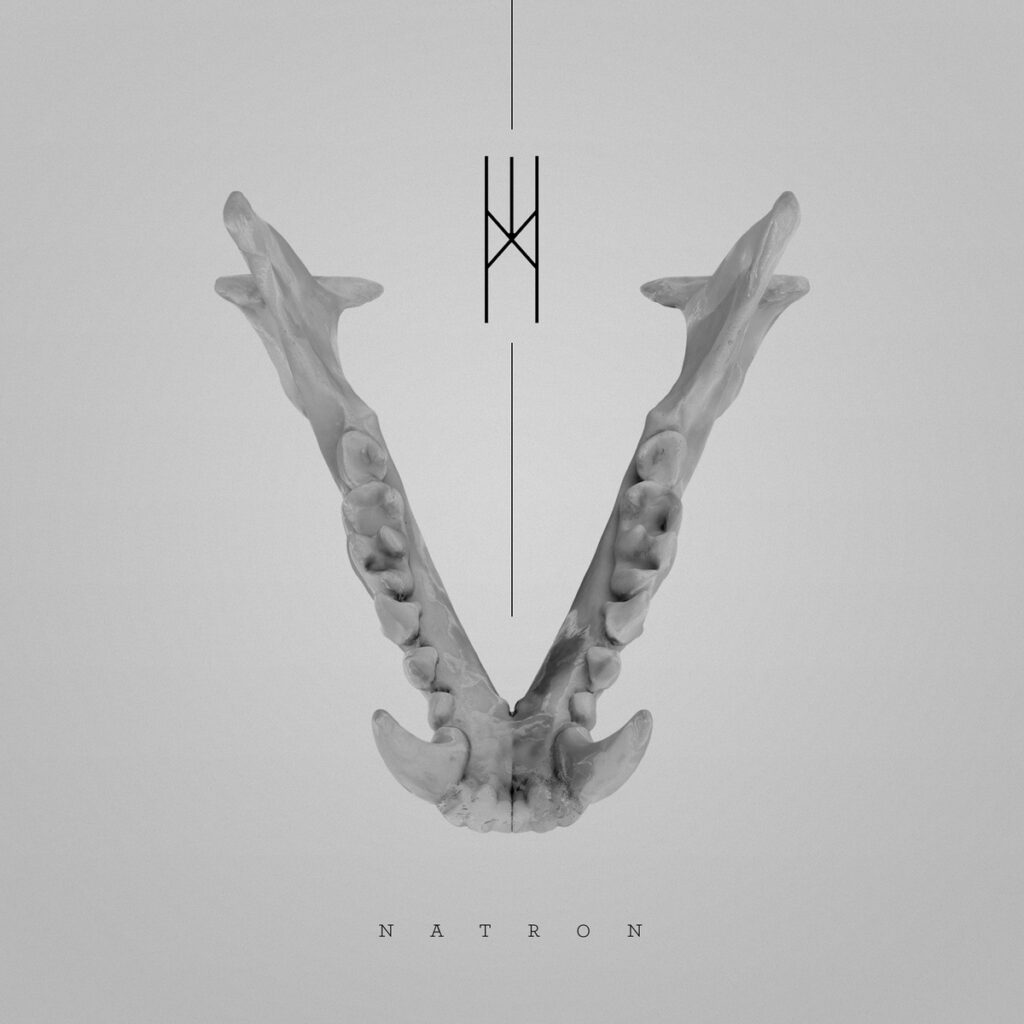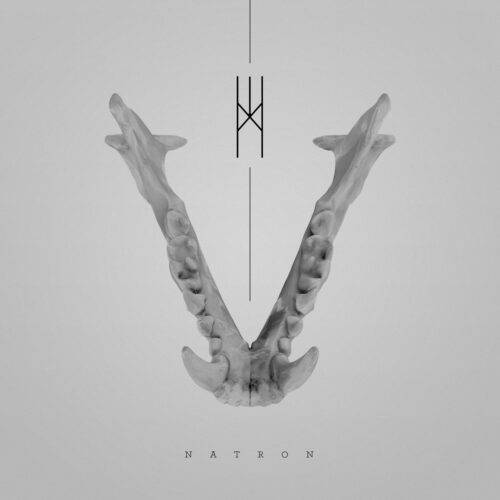France’s C.R.O.W.N. create industrial post-metal that scours your psyche raw, cracking the core musical and elemental middle-ground between Neurosis and Godflesh. That’s not to say that C.R.O.W.N. are content to mindlessly ape those influential bands on second album Natron; there is evolution afoot following their 2013 debut, Psychurgy. On that album, the duo of Stephane Azam (guitars, vocals, "machines") and Pascal Guth (guitars) impressively expanded upon their One EP, combining aspects of doom, sludge, post-metal, industrial and electronica together with hammering processed drums. It was a nihilistic listening experience, and one that was almost exclusively focused on sonic destruction. ‘Abyss’ and particularly the crescendos of ‘Blood Runs’ showcased considerable songwriting craft, and the atmosphere was suitably oppressive throughout – an austere, hour-long soundscape that offered little by way of respite for the listener.
In hindsight, Psychurgy‘s almost psychotic drive for aural punishment was both its greatest achievement and also its biggest limitation. Especially so when you consider how the band have not only discovered how to maintain the density and sheer force on Natron, but also accentuate it by adding more textural contrast and space to the music. The old light and shade approach works for a reason, and by scaling back the intensity from time to time, the impact when the punishing, mechanical riffs return from the disquiet is much more powerful (see: the aptly titled centrepiece, ‘Tension Of Duality’). In saying that, some of the heavier passages heard as the album progresses do sound slightly one dimensional, because of an over-reliance on slow, lurching riffs punctuated by the similar-sounding monochromatic beats. It’s as though C.R.O.W.N., in an effort to create additional texture elsewhere, which they do extremely well, split the focus and the heavier sections have suffered as a result, but not significantly so.
The input of David Husser as producer (he also mixed Natron) cannot be undervalued here. A friend of Azam, Husser brought his industrial background to the band and he reprogrammed the drums to bring them further in line with the stylistic pulse of Nitzer Ebb, Front 242, KMFDM, and their ilk. Expectedly then, the Godflesh comparisons also return. This is particularly apparent during the unforgiving sections of ‘Serpents’; a fantastic example of the dynamic control C.R.O.W.N. have acquired. Moments of ambience are crushed by emotionless, forward-march beats and coruscating riffs over which Azam roars – a direct contrast to the monotone, calm vocals he favours for the verses. Tension is expertly used on ‘Serpents’, and even more so on ‘The Words You Speak Are Not Your Own’: the repetitive singular thump of the bass drum, the clean post-metal guitars, the undulating bass drones and distant sound-bites instil dread which comes to life as the industrial doom via Through Silver In Blood takes hold.
Both of these songs use similar mechanics and so as to avoid repetition, C.R.O.W.N. shrewdly take ‘Wings Beating Over Heaven’ in a different direction. The mechanised blast beats and sinister vocal turns expand upon Pyschurgy‘s ‘Alpha Omega’, adding the required change of pace through black metal traits at the song’s beginning before descending, dirge-like, to the kind of placid post-metal Cult Of Luna crafted for the quieter sections of their Salvation masterpiece. The serenity is eventually shattered by returning blast beats and blackened howls as the song comes to a close.
The duality between quiet and loud dynamics, organic tones and industrialised instrumentation is carried through to the artwork for Natron: the cover depicting a ceramic model of a carnivorous animal’s mandible, representing aggression and frailty. It’s a spectrum of emotion that the once impassive C.R.O.W.N. now seem comfortable exploring. Indeed, a song such as ‘Fossils’ would never have made it onto Psychurgy. In fact, the accessible post-punk motifs are too jarring for this album, and so the song is awkwardly placed. But that’s not to say that C.R.O.W.N. have written a bad track; in actuality, it’s a tune that Grave Pleasures (formerly Beastmilk) would sell their fitted leather jackets and stockpile of pomade for. It just doesn’t work in the context of the music that surrounds it, but it is encouraging to hear that C.R.O.W.N. are confident enough two albums in to try different styles and ideas.
Thematically, C.R.O.W.N., like their influences, deal in weighty subject matter. Natron explores how we, as a society, continue to seek out new technology and put value in our possession to the point of fanaticism, which may lead to our downfall: "a de-socialised or petrified/fossilised society," as Azam recently described to Terrorizer. Azam uses the Natron lake in Tanzania as a "metaphoric vision of our time", due to the fact that some animals can happily inhabit this lake while others can’t and so they become petrified in it. It’s a concept that is very much in sitting with the direction our modern world is going in, and it fits the duality of the music and the artwork. It may not be a new theme for a metal band – for one, Fear Factory prophesied similar realities in the 90s. But when C.R.O.W.N. expose melancholy in industrial metal on ‘Apnea’, a Teutonic-sounding addition to the album, and allow the cinematic ‘Tension Of Duality’ the space to expand forebodingly across 10-plus minutes, you begin to realise that Natron is an apt 2015 soundtrack to societal demise. Not only that, it’s a positive step forward for C.R.O.W.N. and, if we haven’t met our end by machine in the meantime, it’s proof that we can expect even greater things from this French act going forward.
<div class="fb-comments" data-href="http://thequietus.com/articles/18497-c-r-o-w-n-natron-review” data-width="550">



